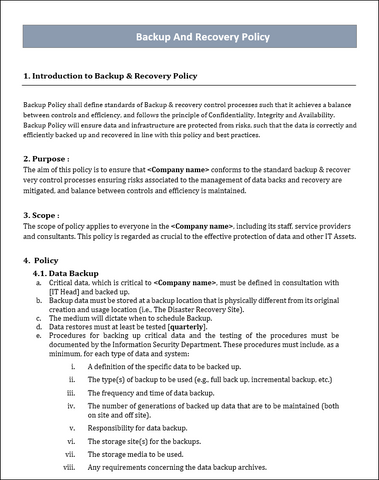


Records associated with HIPAA include, but are not limited to: Although the Health Insurance Portability and Accountability Act (HIPAA) does not have any universal requirements for the retention of medical records - instead, these vary from state to state - it does include specific language concerning the retention of records associated with HIPAA.According to Article 5(e) of the General Data Protection Regulation (GDPR), data must be “kept in a form which permits identification of data subjects for no longer than is necessary for the purposes for which the personal data are processed.” GDPR permits organizations to store personal data for longer periods “insofar as the personal data will be processed solely for archiving purposes in the public interest, scientific or historical research purposes or statistical purposes in accordance with Article 89(1).”.To give you a better sense of the role that data retention plays in compliance, let’s look at a few laws and regulations with specific data retention policy requirements: Failure to comply with these stipulations could leave your organization vulnerable to financial, civil and/or criminal penalties. The fact is that many laws and regulations include specific language related to records management, including what data needs to be stored and for how long. Though there are numerous operational benefits to implementing data retention policies, many businesses establish such policies to avoid running afoul of local, state and federal laws and various industry regulations.


 0 kommentar(er)
0 kommentar(er)
